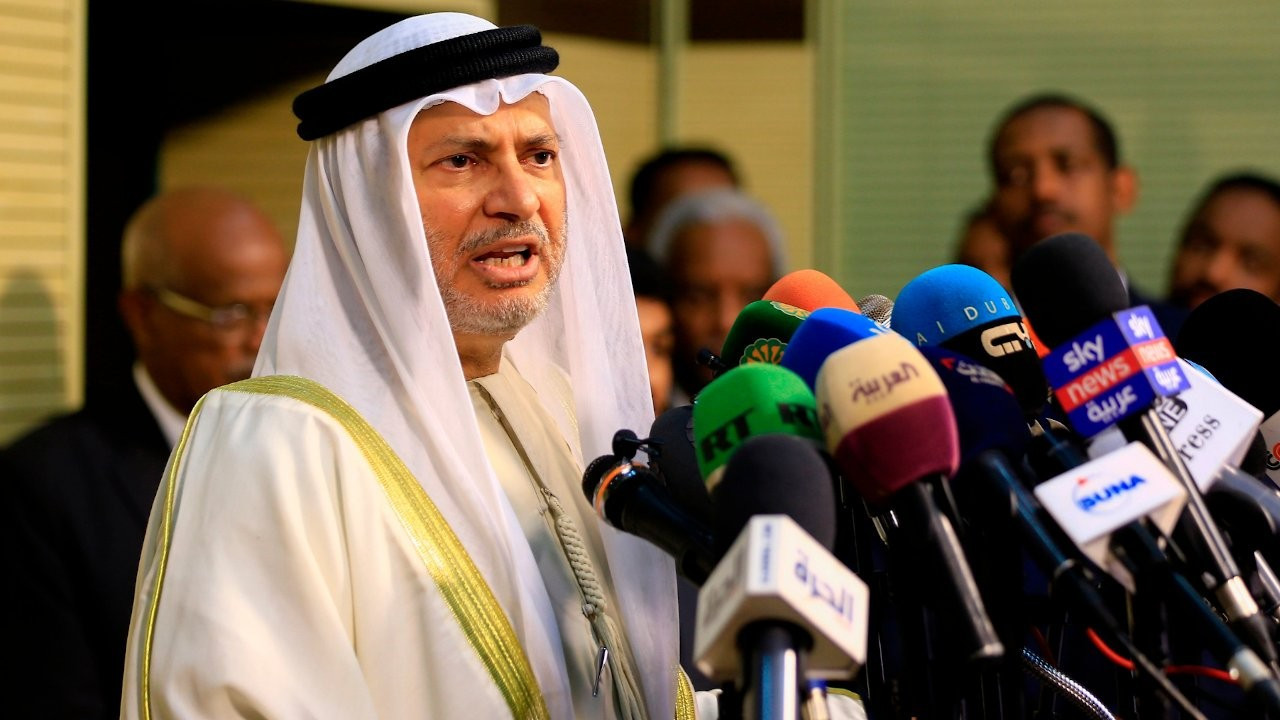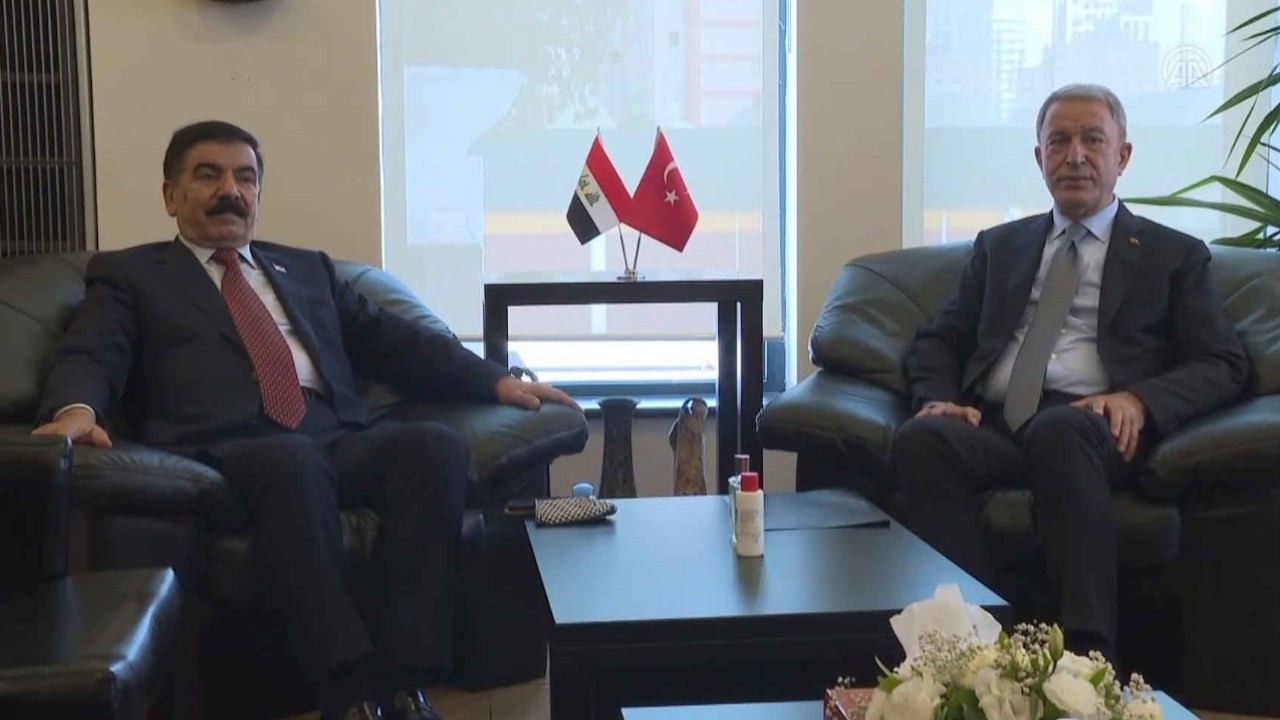Iran and Turkey return to the old game
With both Iran and Turkey reevaluating relations with the long-deadlocked Arab world, the Persian-Turkish rivalry may rear its ugly head.
Will the long-held Persian-Turkish rivalry escalate when Iran and Turkey advance their bid to reduce their adversaries? It may sound like like a paradox, but it may be true.
For some time, there was the perception among Arabs that the real danger was from Iran and Turkey, as they have revived their imperial ambitions in the region. This was especially evident during the promotion of the Abraham Accords with Israel. Nowadays, both Iran and Turkey are scrutinizing the network of relations with the Arab world which have reached a deadlock.
The fourth session of talks between the Iranians and the Saudis, mediated by Iraqi Prime Minister Mustafa Al-Kadhimi, took place at Baghdad International Airport last month. Reportedly, a preliminary agreement has been reached to establish a joint mechanism on Yemen, which pits the two countries against each other. While the Saudis are acting carefully due to the problematic files on the table, the effects of a possible reconciliation will be felt across multiple regions.
In addition to the exploratory talks with Egypt, Turkey has entered into a rapid dialogue process with the United Arab Emirates (UAE). In order to normalize with the Saudis, there have been prelude gestures. It is impossible for Ankara to remain eternally indifferent to the Arab quests for normalization with Syria. Sooner or later, there will be thawing of the ice on the Damascus-Ankara line.
However, while both countries have entered the route of normalization with the Arabs, they have retrieved the centuries-old rivalry between them.
We are witnessing two important developments that prompted this question of rivalry: the Caucasus and the Iraqi stage.
As Turkey is trying to expand its position in the Caucasus after the Karabakh war, Iran considers such developments dangerous. Iran launched a military exercise on its borders with Azerbaijan in early October in a very threatening manner. While Tehran intimidated Baku, messages came through different backgrounds to Turkey.
The Iranian Foreign Ministry claimed that terrorists had been transferred to the territory now controlled by Azerbaijan and that Israeli spies were now activate in the region: “Iran will never tolerate the Zionist regime’s presence along its borders. We certainly will not tolerate geopolitical change in the region.” Turkey has been the country pointed at in all these accusations of transfers of terrorists, from political statements to the media.
The commander of the Iranian Ground Forces said the exercise was a message to Israeli spies in Azerbaijan. Azerbaijani President Ilham Aliyev strongly denied the accusations and asked why Iran conducted the exercise after the Armenian occupation ended, which it did not conduct when the Jabrayil, Fuzuli and Zangilan regions were under Armenia’s control. Aliyev also dispalyed anger by closing the office of representative of Iranian religious leader Ali Khamenei in Baku.
Iran’s drill came after Turkey conducted bilateral military exercises with Azerbaijan in the region, which became trilateral when Pakistan joined later.
“Azerbaijan is forming an invisible alliance with Armenia, Israel, Turkey and the United States to promote geopolitical change with strategic consequences for Iran and Russia,” Kayhan newspaper said, citing the Iranian Foreign Ministry. Kayhan commentary also threatened Azerbaijan’s leader, writing that Iran never wanted to use the Shiite population of 6 million in this neighboring country to punish Aliyev. Azerbaijanis, on the other hand, say Tehran will face the wrath of Iran’s Azeri minority when it fights Baku. There were even those who talked about erasing Iran from the map.
Strategic change in the Caucasus is in Russia’s hands to a great extent. Nevertheless, Iran blames Turkey for the collapse of the equilibrium. Turkish President Erdoğan has proposed a six-member platform including Iran, but despite this, if the Nakhchivan corridor is opened as planned, this could cause Tehran to lose its position in transit transportation. In other words, Turkey’s strategic visions challenge Iran’s strategic concerns.
In the aftermath of the Karabakh war, Iranian newspapers focused on these concerns. Iran is the land connection between Azerbaijan and Nakhchivan. According to Mashregh newspaper, Iran receives a 15 percent commission from the natural gas transferred from Azerbaijan to Nakhchivan. Turkish trucks going to Central Asia also use the Iranian route. On average, there are around 12,000 trucks passing per month. Iran charges a toll of 700 to 800 dollars for the 1,800-kilometer route to the border with Turkmenistan. If a corridor between Azerbaijan and Nakhchivan is opened via the Zengezur region of Armenia, including highways, railroads and pipelines, Iran will lose a significant amount of revenue. The Javan newspaper also claimed that Turkey was targeting the geopolitical interests of Iran and Russia and that this was in line with the U.S. strategy. It wrote that “Iran will not accept this corridor.” In its October 2nd edition, Kayhan newspaper portrayed the corridor as an attempt to undermine Iran politically and economically as well as security-wise.
Currently, with the land changing hands, the Goris-Kapan transit route between Iran and Armenia has ceased to be a safe route for Iranians. What triggered the latest tension between Baku and Tehran was Azerbaijan’s stopping of the trucks from Iran and arresting several drivers for illegally transporting cargo to Karabakh.
Additionally, conspiracy theories that the Turkish-American-Israeli partnership has long been trying to divide the country with the dream of a “Greater Azerbaijan” also provide the basis for political assessments in Iran.
Iraq is the other leg of this recurring rivalry in the Caucasus. After 2003, Turkey tried to keep the Sunni bloc strong against the Shiite bloc to stabilize Iran. But in time, Ankara even lost its Sunni card to Tehran. Sunni leaders have stepped up their interactions with Shiite actors in order to be influential in coalitions as well as the office of the speaker of the parliament. In addition, over the past couple of years, while the Shiite bloc was disintegrating, several rivalries and divisions intensified within the Sunni bloc. There is no unified bloc for either side anymore.
Templates such as “Sunni card against the Shiite card” have expired.
Still, Erdoğan tried to influence the Sunnis just days before the elections. On October 4, he hosted Mohammed al-Halbousi, the Speaker of the Iraqi Parliament and leader of the Taqaddum Party, and Khamis al-Khanjar, Head of the Azim Alliance, who hate each other, separately at the presidential complex in Ankara. The desired and targeted Sunni unity could not even be achieved in a photo op.
An unnecessary, unpredictable and a high-profile intervention that failed to grasp the extent of both Sunni leaders’ relations with Tehran, that also could not see Sunni actors enjoying the support of rival states in the Gulf, and that always and altogether missed out on the diversification of the political profile. The fact that an issue dealt by the National Intelligence Organization (MİT) has been tackled at the presidential level has astonished the Iraqis.
Just like Iran, Turkey’s place in Iraqi politics has become highly controversial. Erdoğan posing with Halbousi and Khanjar has zero chance of achieving a Sunni unity, but this initiative demonstrates the rebirth of Ankara’s ambitions to mold Iraqi politics through Sunnis.
Certain segments are trying to turn the elections into a referendum between the Iran-linked Hashd al-Shabi groups and those who are against them. In this escalation, Erdoğan is also trying to get back into the game with his Sunni card, which has lost its validity due to the wrong policies and preferences during the rise of ISIS. We see that sharpening against the Iranian influence is key here. This should be considered together with the perspective that blames Tehran for the resistance to plans to intervene in Sinjar, to rebuild Mosul, and to open a gate at Ovaköy. While the reasons that trigger this sharpening are not imaginary, the route is contrary to the interests of both countries. This has been tested several times over the past couple of years.


 UAE official says time to manage rivalry with Iran and TurkeyDiplomacy
UAE official says time to manage rivalry with Iran and TurkeyDiplomacy Iraq wants to buy armed drones, attack helicopters from TurkeyDiplomacy
Iraq wants to buy armed drones, attack helicopters from TurkeyDiplomacy